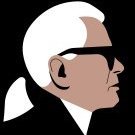Leaderboard
Popular Content
Showing content with the highest reputation on 09/12/22 in all areas
-
3 pointsAccording to the following link to the Argus in Brighton, Francis Rossi visited the toy museum there in June as part of the filming. Assuming it was all done around that time then. https://www.theargus.co.uk/news/23177144.status-quo-singer-visits-brighton-toy-museum-bbc2-tv-show/
-
3 pointsAustralian former "Golden boy" of Rugby, Sandy Campbell, has throat cancer: https://www.foxsports.com.au/nrl/nrl-premiership/nrl-2022-sandy-campbell-homeless-throat-cancer-gofundme-bulldogs-roosters-rabbitohs/news-story/965db9057e0995d9120f1691fd7f5590 56 years old, but now homeless and a sad sight.
-
2 pointsShame, I always liked Ring My Bell. Quite a floor-filler back in the day. Still, I suppose most of the dross has already been cleared out.
-
2 pointsI see Meg Wynn Owen was picked by Baby Blue for this competition just in case her death needs to be noted.
-
2 pointsPeruvian politician, ancient Fujimorist Martha Hildebrandt finally dead at 97. Had "an emergency" but had already died by the time the paramedics arrived. Susana Richa de Torrijos of Panama made an appearance somewhere last month and looked absolutely amazing for 98, probably one of the healthiest 98-year-old politicians I've seen. Also still a Member of the National Assembly. I guess having a dictator in the family might sometimes be good for your health.
-
2 points
-
2 pointsKim Basinger, the well-known American actress and sex symbol of the 1980s and 1990s who came to prominence playing Domino Petachi, a Bond girl, in the film "Never Say Never Again" (1983), opposite Sean Connery, is 69 today. Enrique Ponce, the famous and remarkable Spanish former professional bullfighter, very few bullfighters have reached his extremely high technical level, who was awarded the Gold Medal of Merit in the Fine Arts, is 51 today. He has also been given the title of Academic by the Royal Academy of Sciences and Arts in Córdoba (Spain). Enrique Ponce is the first academic bullfighter in history. In 2019, he was seriously injured after being tossed into the air and pierced by the bull's horn in his lower backside.
-
1 pointFormer US. Secretary of State, Henry Kissinger, had an angioplasty procedure earlier this week and is now resting at home. He has experienced heart trouble for several years since suffering a heart attack in October 2000 and undergoing a bypass operation the following year. At 81 and in frail health could he soon be kissing death? Kissinger undergoes heart procedure
-
1 pointDepends on when he was diagnosed.Most people apparently live for 12 years however Terry Jones of Monty Python died 4 and a half years after diagnosis.
-
1 pointCutting down my shortlist for the notable Oldies team, here's some folk I can't find room for, who could make a good team filler for others. They're punt/gut feeling rather than Absolute Certs otherwise you know, I'd be keeping them to myself. But I think a few of them could be good differentials for some DDP sides in 2023 tbh. Rodney Marsh (1944) - Drink loving eccentric footballer of the 60s/70s, became an outspoken pundit fired by both Sky and Talksport for his jokes. One of those names that don't feel like they'd see advanced old age. Not to be mistaken for the dead cricketer. Fred Housego (1944) - Taxi driving Mastermind champion. Writes books, wins quizzes, drove his taxi till 2007. Overweight and diabetic for much of his life. Bob Marshall-Andrews (1944) - One time notable backbench Labour MP. Who doesn't like Bob Marshall-Andrews? OK, lots of people but if you can't find a spot on a theme team somewhere for a man who once reverse psychology gained a bunch of votes by ordering people not to vote for him, and once went on live TV to blame Tony Blair for him losing his seat, only for it turn out later he'd actually kept it, then who can you keep a spot for? Adam Hart-Davis (1943) - TV presenter, used to never be off the box. Combination of aging, grumpiness and rumbings about some Dave Lee Travis tendencies on set cut down his appearances. Looked a lot older and frailer when seen a year or two ago, and hasn't updated his website or once busy Facebook in years now. Dennis Canavan (1942) - Politician who was once in the Labour party but later got elected as an independent MSP. Has had to bury all four of his kids. Sean S Cunningham (1941)/Brian De Palma (1940)/Dario Argento (1940) - Rarely mentioned (on here) big name directors in their 80s now. Derry Irvine (1940) - Trained Blair, got a spot in the Cabinet, had a scandal. Used to vote all the time in the Lords, hasn't for three years now. Anne Perry (1938) - Best selling crime novelist who was also a notorious killer. Hey, write what you know! Still quite active (at the writing, not the murdering!) but one to keep an eye on, and you know DI wants to write about that story one day. Lance Henriksen (1940) - Looked quite frail in his last big TV thing, I thought, but never had enough room for the Aliens star. Charles Cyphers (1939) - Regular in John Carpenter movies, he's the police chief in Hallowe'en, the weatherman in The Fog, and so on. Paul Vachon (1938) - Legendary pro-wrestler, looked and sounded like every breath could be his last in interviews earlier this year. I would pick him for Pan Breed if I had the space. Tom Oliver (1938) - Lou from Neighbours, allegedly very ill now. Andrew Davies (1936) - Possibly the most famous living screenwriter: House of Cards, Pride and Prejudice, A Very Peculiar Practice etc etc. Had cancer a few years ago, looked ghastly when I saw him interviewed before the pandemic, but said work kept him going. He's working on Sanditon at the moment but even he's had to reduce his workload now. David Winnick (1933) - Of course. The Ghost of the House of Commons could see 90 next June. How? Other than relaxing in his (forced) retirement, I've no idea... (Wiki crashed mid-way through this. Also they've updated how imdb works and it sucks.)
-
1 pointThey probably gave everything to charity (after deduction of expenses, salaries, etc etc). The charity is probably like "Ok so where's the rest?"
-
1 pointLet's get the obvious one out of the way. If you want a prediction on when he is going to die you could just ask him.
-
1 pointMaybe. Celebrities might be less affected by it compared to ordinary folk as private healthcare was less disrupted and many celebs use private healthcare. My shortlist is shit. I can only think of a couple of cancer names as I am out of the loop.
-
1 pointGuardian obit for Alan Jinkinson (wiki), aged 87, British trade union leader who was General Secretary of UNISON (1993–1996). Also stood as the Labour Party candidate at the infamous Orpington by-election in 1962 (came third and lost his deposit).
-
1 point
-
1 point
-
1 pointProbably true, Tommy Haas posted this insta tribute two hours ago and Twitter is saying he did die…
-
1 pointThe Stalin body double guy is seemingly still alive. 100 or 103 in four months.
-
1 pointAs long term TCD fans will know, we add lists to the masterlist as they come in, and then add in the sub points closer to Hogmanay. (And then Betty White went and died, but, it helps when events like that happen. Imagine me needing to sub 4000 points in 2 hours!) So, with an RIP to Leslie Philips, I can confirm that not only is he the first DNS name to fall from contention on the 2023 TCD, but, at time of posting, he was in first place on the list!
-
1 pointDoulton's pick Walter Abish dead at 90: https://www.nytimes.com/2022/05/31/books/walter-abish-dead.html Also a DDP pick so perhaps I'll cross-post to Authors.
-
1 pointhttps://www.thesun.co.uk/tvandshowbiz/2565832/the-pogues-frontman-shane-macgowan-arrives-in-a-wheelchair-as-he-bids-farewell-at-his-mothers-funeral/:Pictured at his mother's funeral in a wheelchair and slippers.
-
1 pointIn my point of view a good pick für DL. Big Name, he is well known all around the world and he`s 95 years old fart
-
1 pointEr, the link you posted is only available to paying subscribers of The Times! .Rupert Murdoch will curs e e for tdoing this but heres the article in full... Minister of Transport in the late 1960s who quit the Commons to become chairman of British Rail Richard Marsh was a minister in the Labour Government of Harold Wilson in the 1960s and chairman of British Rail from 1971 to 1976. After a rapid rise to ministerial and Cabinet rank he was, surprisingly, relegated to the back benches at the age of 41. He left the House of Commons in 1971 for the challenging role of chairman of the British Railways Board after which he acquired numerous company directorships, along with appointment to the chairmanship of the Newspaper Publishers’ Association. Richard William Marsh was born in 1928, the son of a foundry worker. He was educated at Jennings School, Swindon, followed by Woolwich Polytechnic and Ruskin College, Oxford. He was an official with the National Union of Public Employees from 1951 to 1959 and a member of the clerical and administrative Whitley Council for the health service from 1953 to 1959. Dick Marsh made a first, unsuccessful, attempt at a parliamentary career in 1951 when he contested Hertford for Labour. In 1959 he was elected for Greenwich. He made an early impact on the Commons. His success in the draw for Private Members’ Bills resulted in the passing of the Offices Act 1961, which extended to white-collar workers some of the legal safeguards which manual workers had long enjoyed. As a young backbencher Marsh was regarded as a bright spark and he developed a reputation as a good speaker — lively, witty and often waspish. After a couple of parliamentary secretaryships in the mid-1960s he was appointed Minister of Power in 1966, a post in which his flair and ability soon became apparent through his promotion of the Bill renationalising the steel industry. Exploitation of North Sea oil was another important matter for which he had ministerial responsibility and a pit closure programme cast him as one of the least favourite Labour politicians, certainly among the miners’ group of MPs. Two years later Marsh was made Minister of Transport, inheriting from his predecessor, Barbara Castle, another troubled area of policy with a controversial Transport Bill awaiting him. Ports nationalisation, the fitting of tachometers in lorry cabs and the setting-up of the centralised computer system for vehicle licensing at Swansea were some of the controversial matters with which he had to deal, besides the inevitable round of bus and rail strikes. At this time Marsh was being spoken of as a future Labour prime minister and in the light of his unquestioned ability and potential it came as a surprise when, in a ministerial reshuffle in 1969, Wilson relegated him to the back benches. In the customary exchange of letters on such occasions, Marsh wrote to Wilson: “As for my return to the back benches, I enjoyed it in the past and, having got over the initial surprise of my first redundancy, I am looking forward to an active period of life back on the shop floor.” Then, in typical Marsh style, he went off to celebrate his misfortune with a party. He was noted for his humour and irreverence. Since the death of the Labour Party leader Hugh Gaitskell in 1963, he had become increasingly concerned at the party’s slide to the Left. His demotion added to his growing disenchantment and, after a change of government in 1970, to increasing frustration as an opposition backbencher. He left Parliament in 1971 when, during Edward Heath’s premiership, he was appointed chairman of British Rail. There, faced with rationalising the system, he said: “My responsibility is to run a business, not a social service.” He managed to sell the board’s future strategy to the unions although they had reservations about the number of job losses in the modernisation programme. Chairmanship of a major nationalised industry presented Marsh with a challenge he relished but, having changed sides, he came to believe that politicians should resist involvement in the day-to-day running of nationalised concerns. He found continuing interference a frustrating experience In l975, by which time Labour was back in power, he led the chairmen of other nationalised industries in talks with the Government to attempt to work out a new relationship with Whitehall which would reduce state intervention in their affairs. After five years as chairman he retired from the rail board, announcing that he did not wish to serve another term. Marsh was knighted in 1976, the year in which he succeeded Lord Goodman as chairman of the Newspaper Publishers’ Association (NPA). This appointment marked a departure from previous practice: he was the first chairman to come from outside the newspaper industry — even Goodman had had some newspaper experience as chairman of the Observer Trust. A previous chairman had earlier said that only a masochist could find involvement with the NPA in any way consoling. Marsh brought to it a suave efficiency, although by the time he took over it had already become a much less effective organisation than it once was. From 1977 to 1982 Marsh was also chairman of the British Iron and Steel Consumers’ Council, an independent organisation that had been set up at the time of nationalisation to protect the interests of steel-using industries. Thus Marsh renewed an association with the steel industry started in his ministerial days. In 1978 he announced that he would vote Conservative and became a supporter of Margaret Thatcher, who became Prime Minister in 1979. Marsh was made a life peer, Baron Marsh of Mannington in Wiltshire, in 1981 and sat on the crossbenches. He was an amusing and friendly man — tall, athletic and youthful in appearance. He employed a technique for greeting people he had met before but couldn’t remember by asking: “So how’s the old trouble?” They always had something to say, although he was once confused when an old Cockney starting telling him about his wife. Marsh had always mixed naturally with the wealthy and successful and found himself a congenial niche in the world of business. He amassed a clutch of directorships of companies whose interests varied from medical enterprises and technical components to the manufacture of jeans and casual wear. He acted as UK adviser to the Fujitec lift and escalator company and to Nissan, the car manufacturer, and was involved in that company’s plans to build plants in Britain. He was also one of the original investors in TV-am, the commercial breakfast television company, and in its early, troubled days in 1983 he became deputy chairman and then for a year was chairman when the original incumbent, Peter Jay, was ousted. He published a volume of autobiography, Off the Rails, in 1978. He was married three times. His first marriage, to Evelyn Andrews (“Andy”) — by whom he had two sons — was dissolved in 1973 after 23 years. His second wife, Caroline, died in 1975 after a car crash in Spain in which the wife of David Jacobs, the broadcaster, was also killed. Marsh and Jacobs both survived the accident. In 1979 he married Felicity, the daughter of Lord McFadzean of Kelvinside. Lord Marsh, Labour MP for Greenwich 1959-71, and chairman of British Rail 1971-76, was born on March 14, 1928. He died on July 29, 2011, aged 83 Think he's got slightly bigger issues to worry about right now. He certainly won't offer you a job as a proofreader
-
1 point
-
1 point
-
Newsletter
Important Information
Your use of this forum is subject to our Terms of Use















